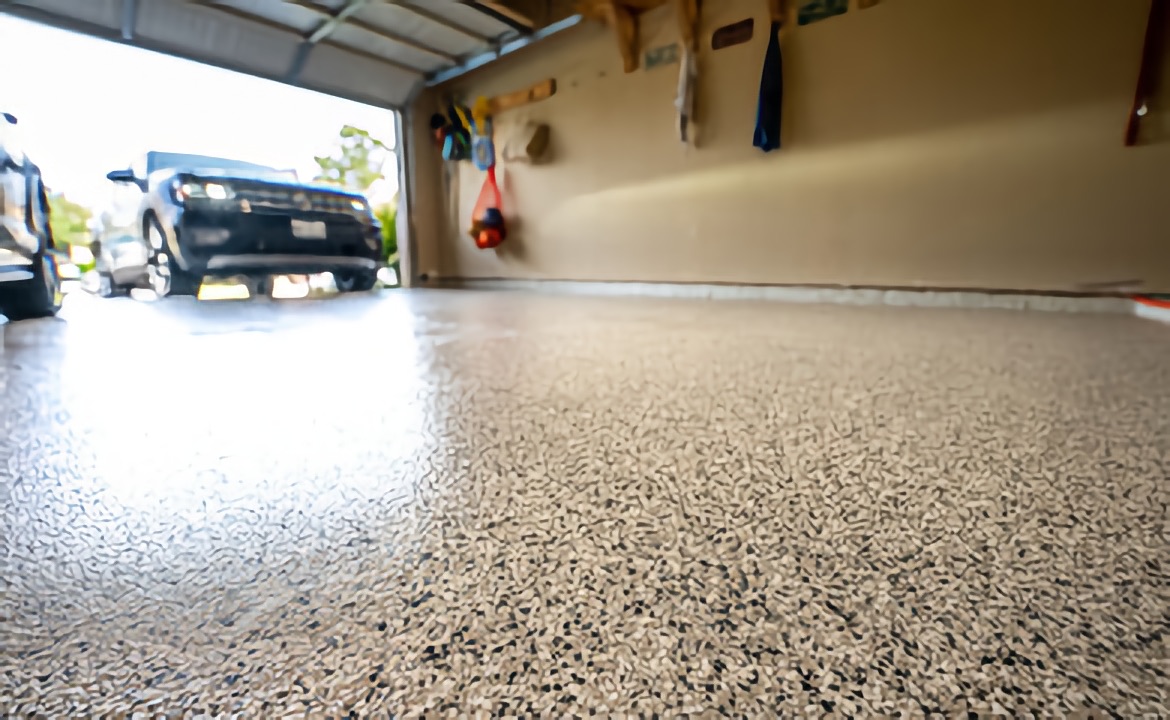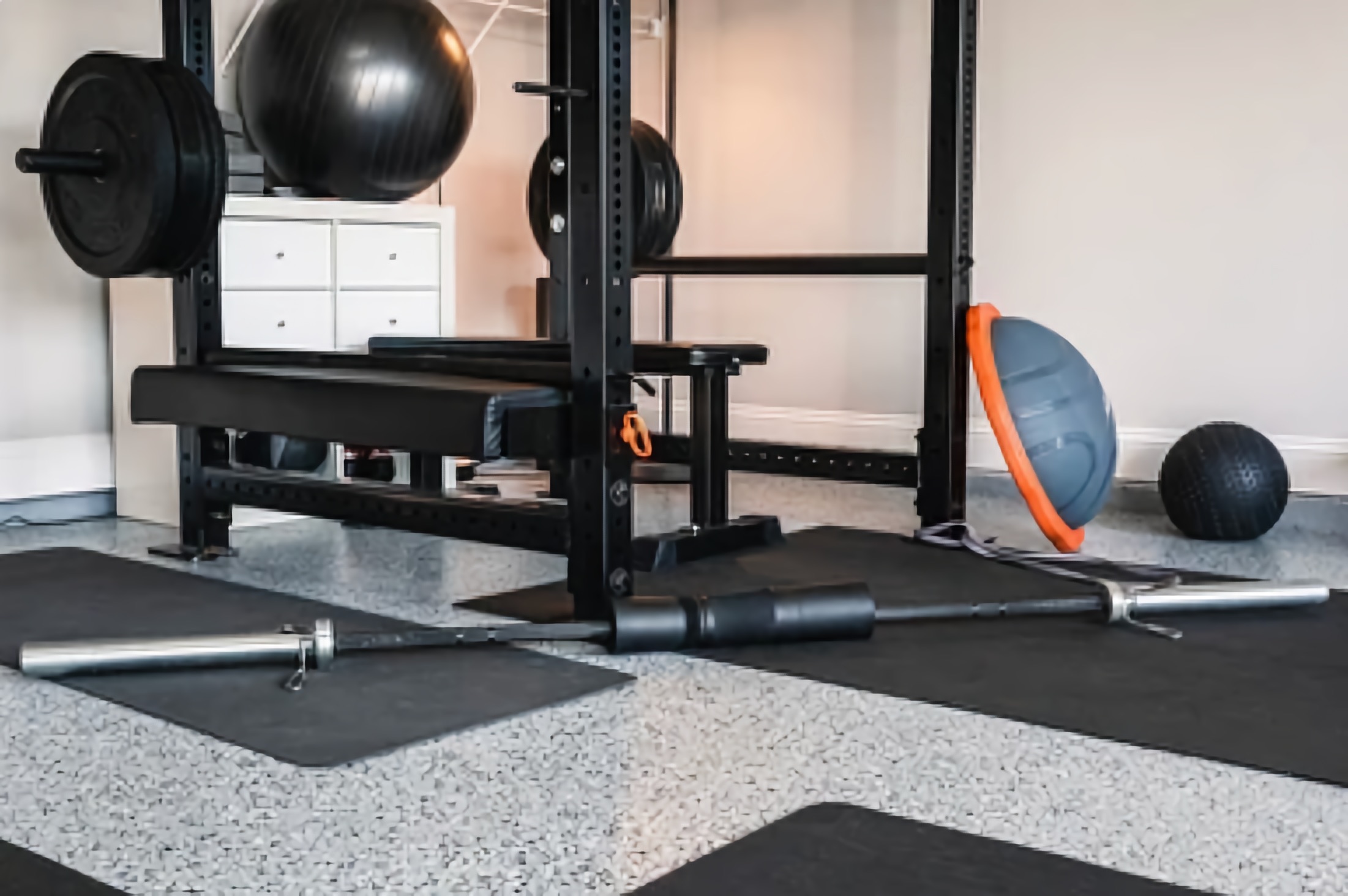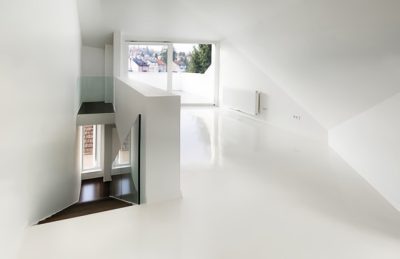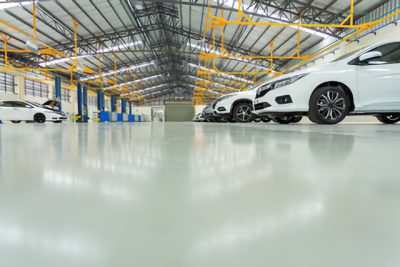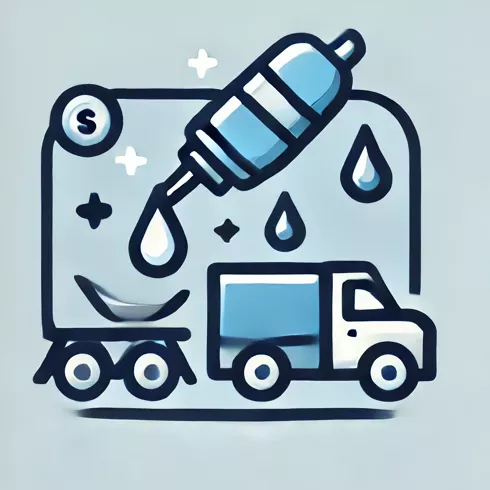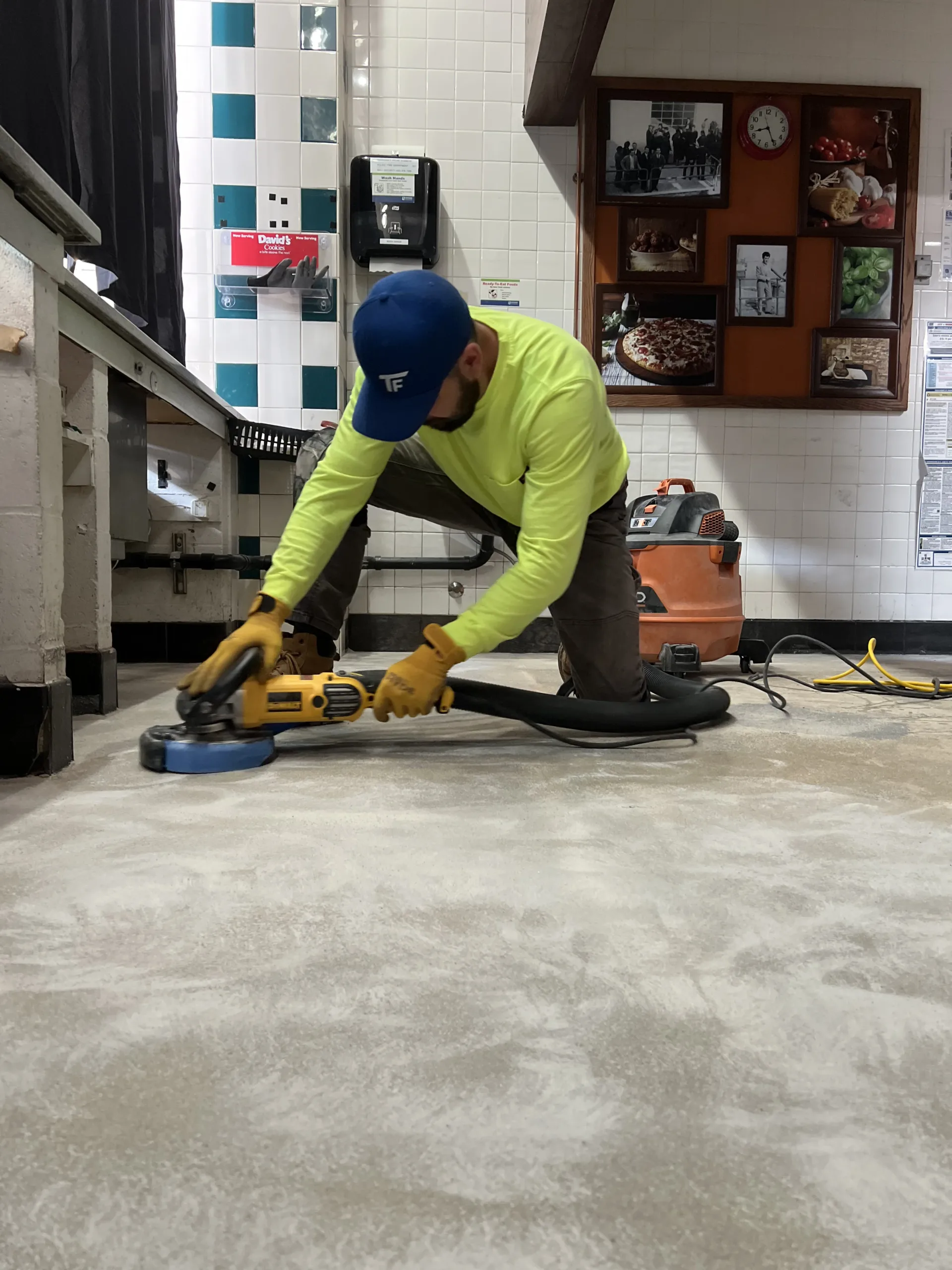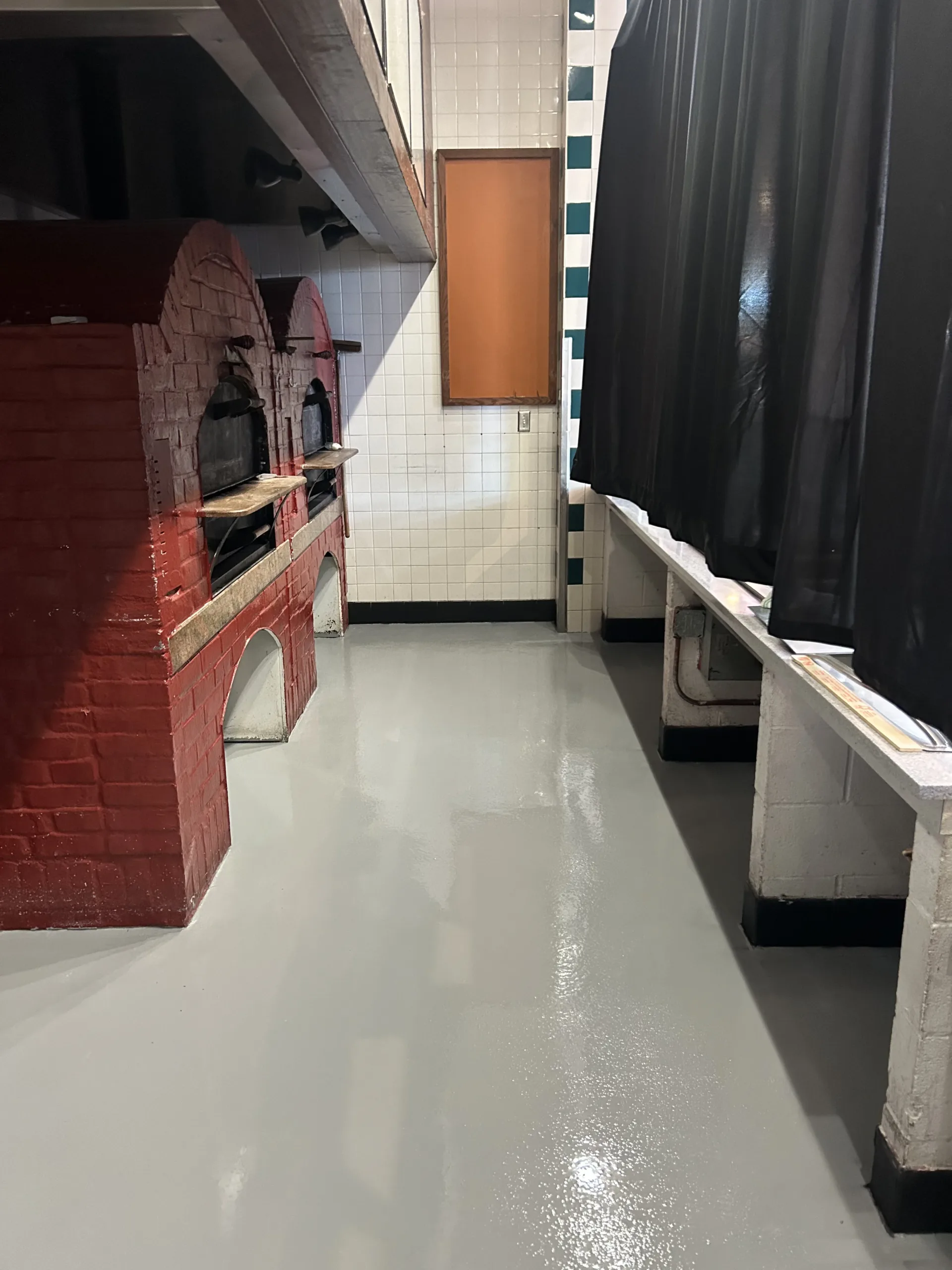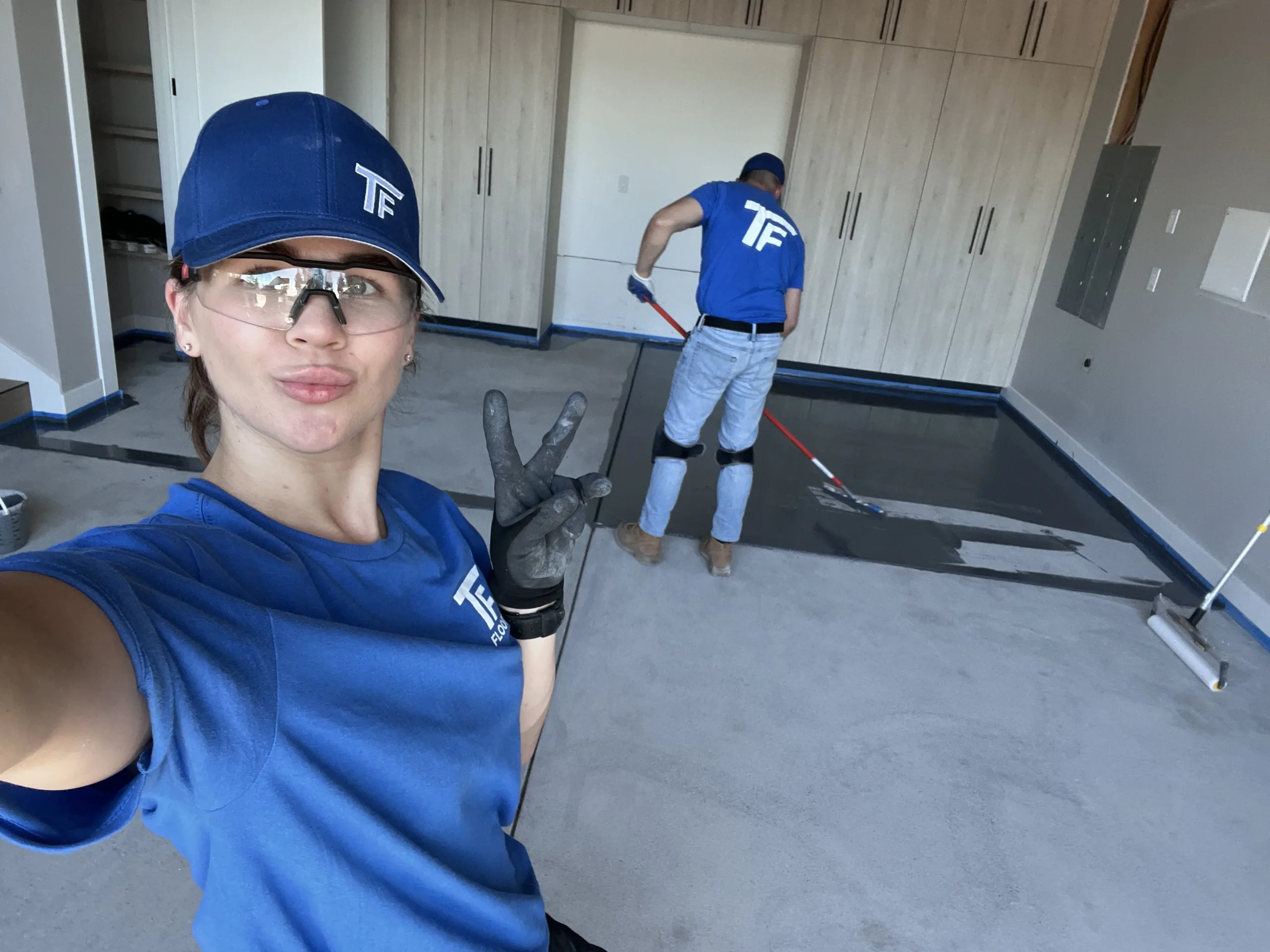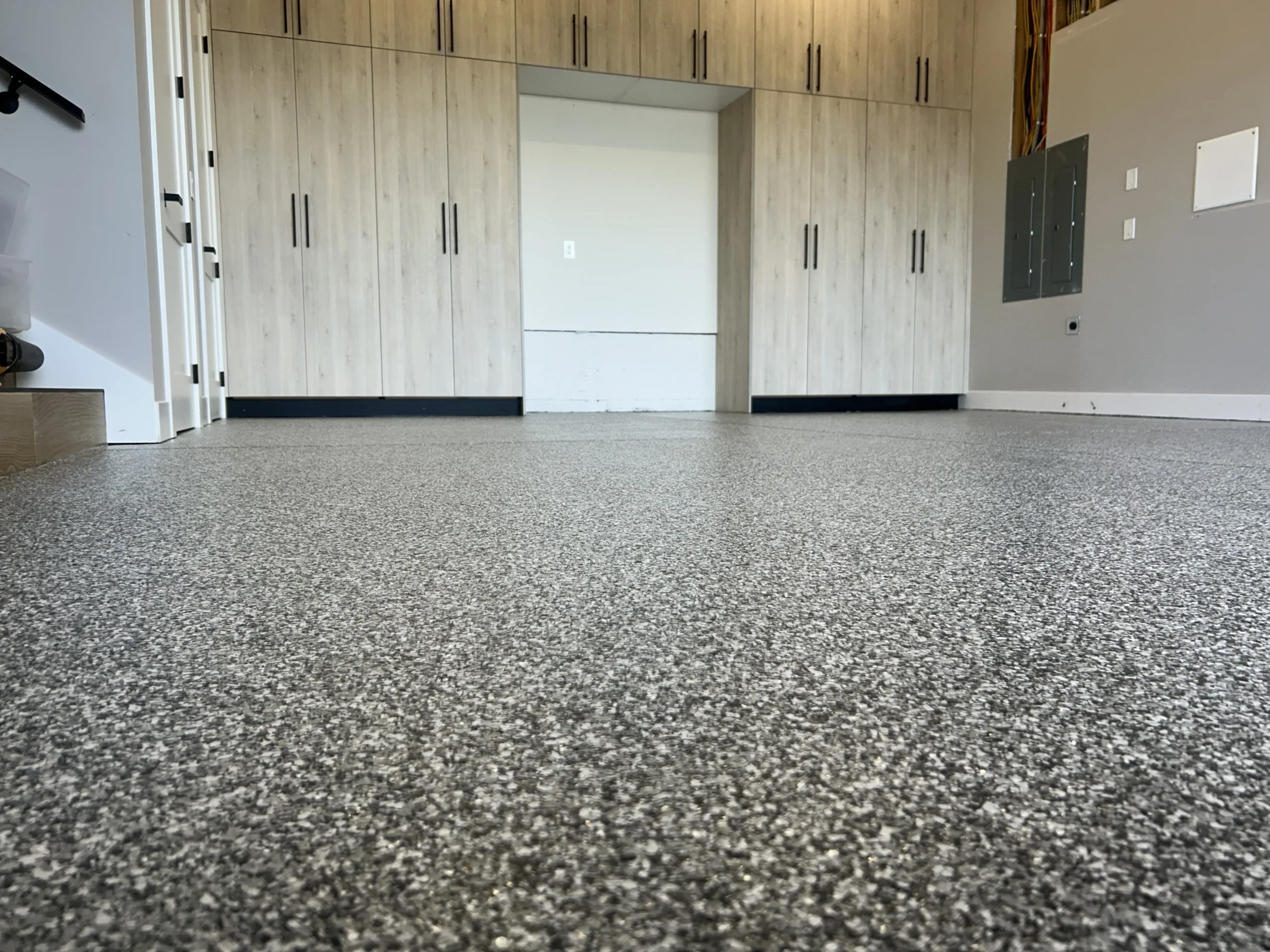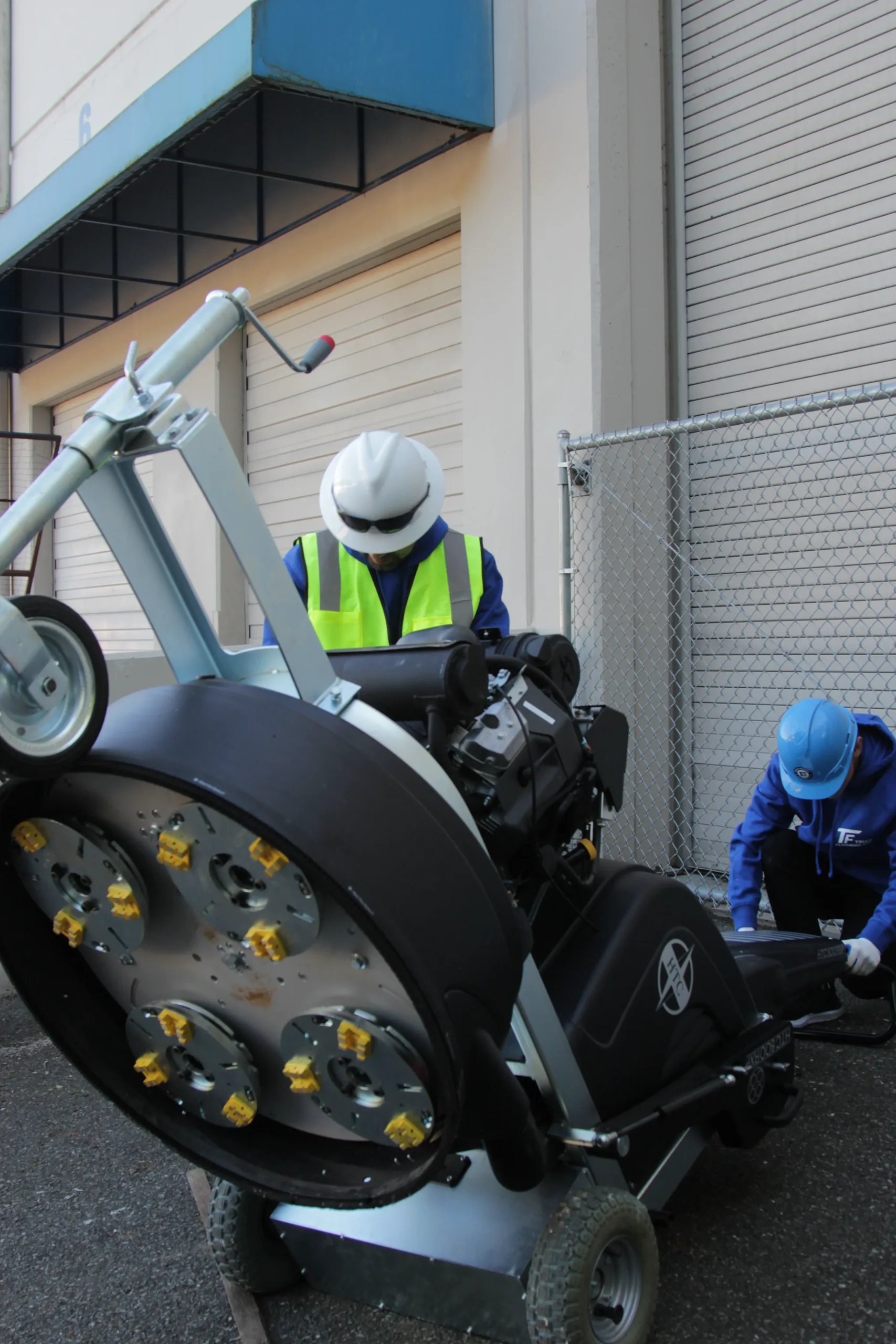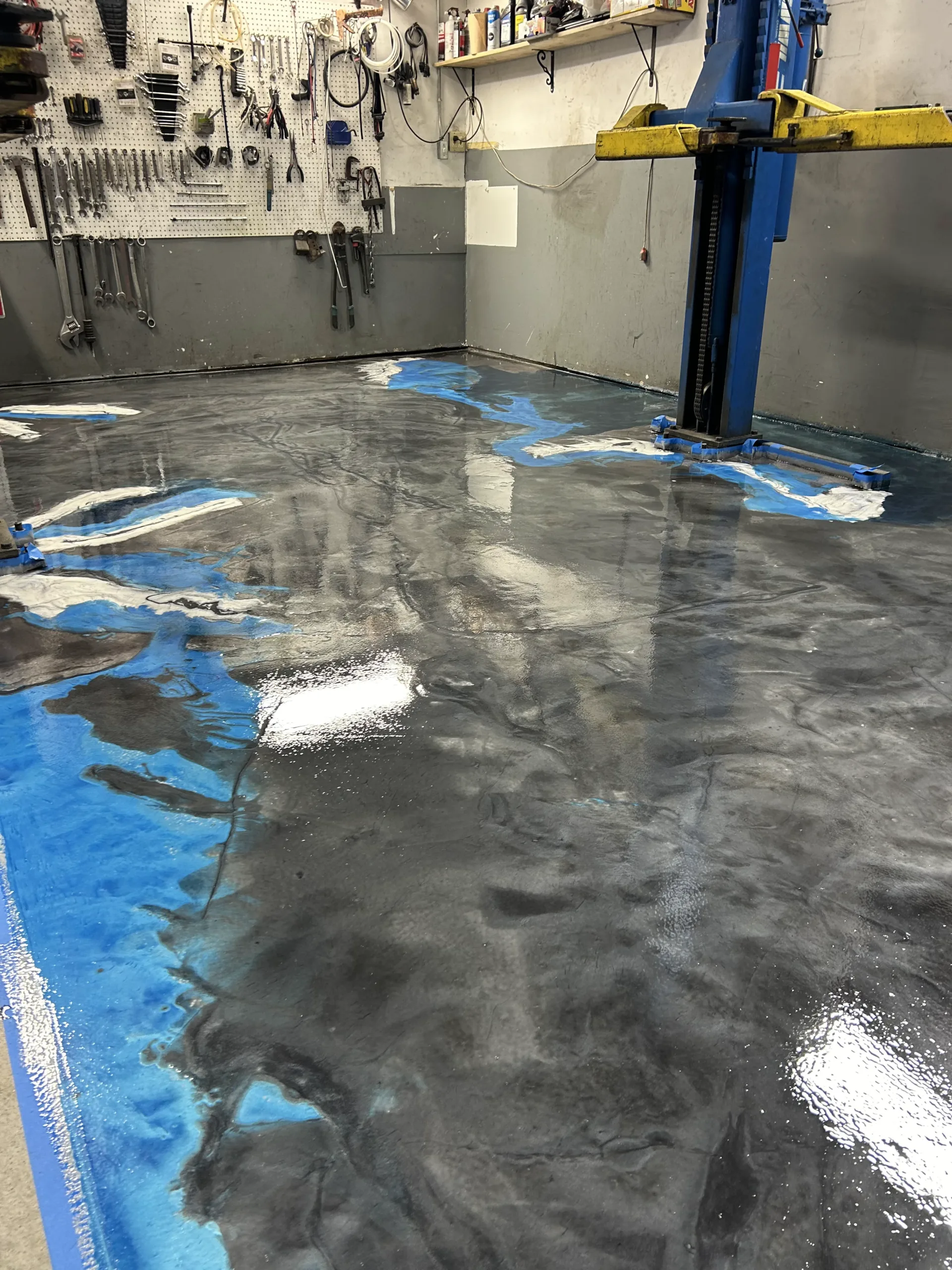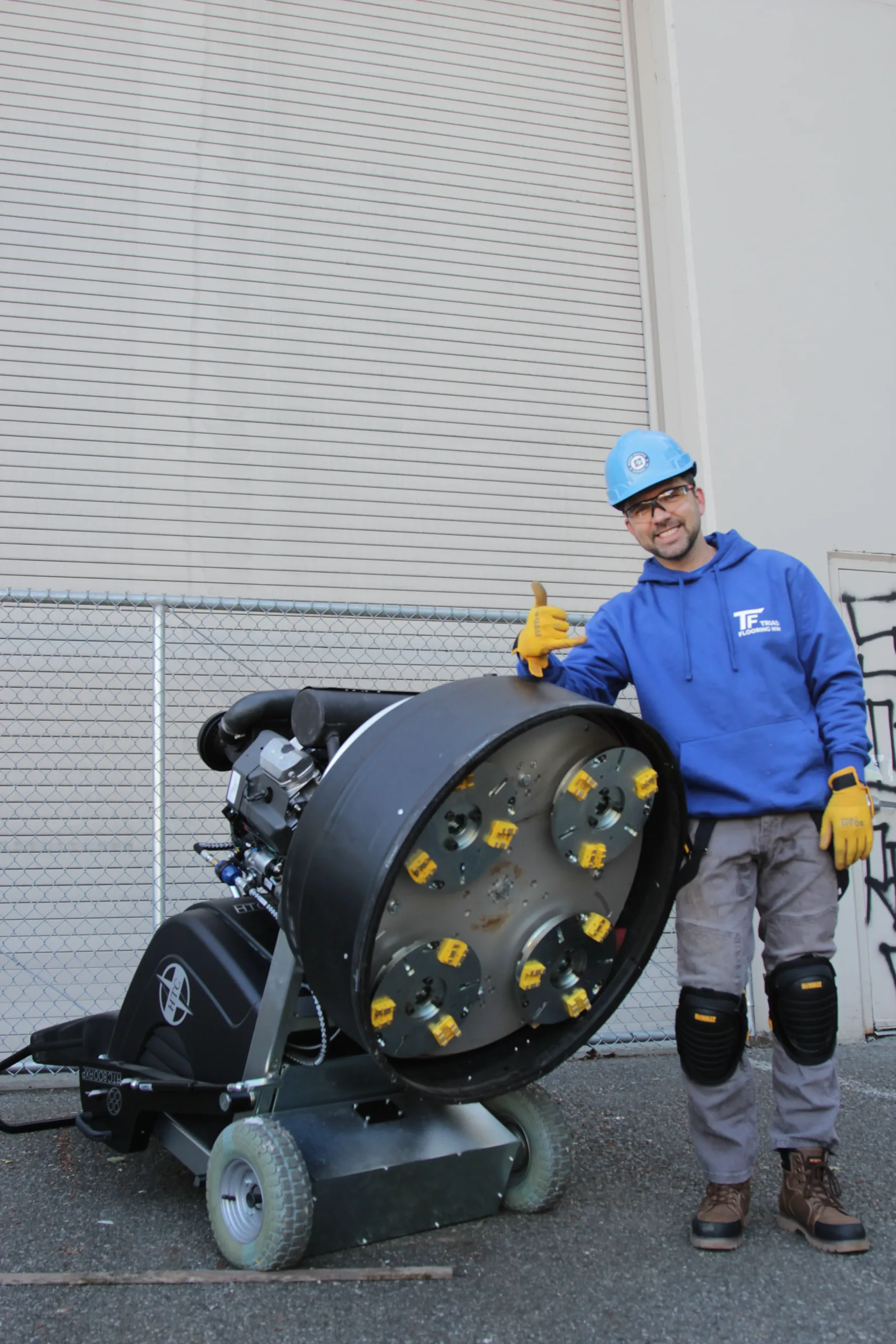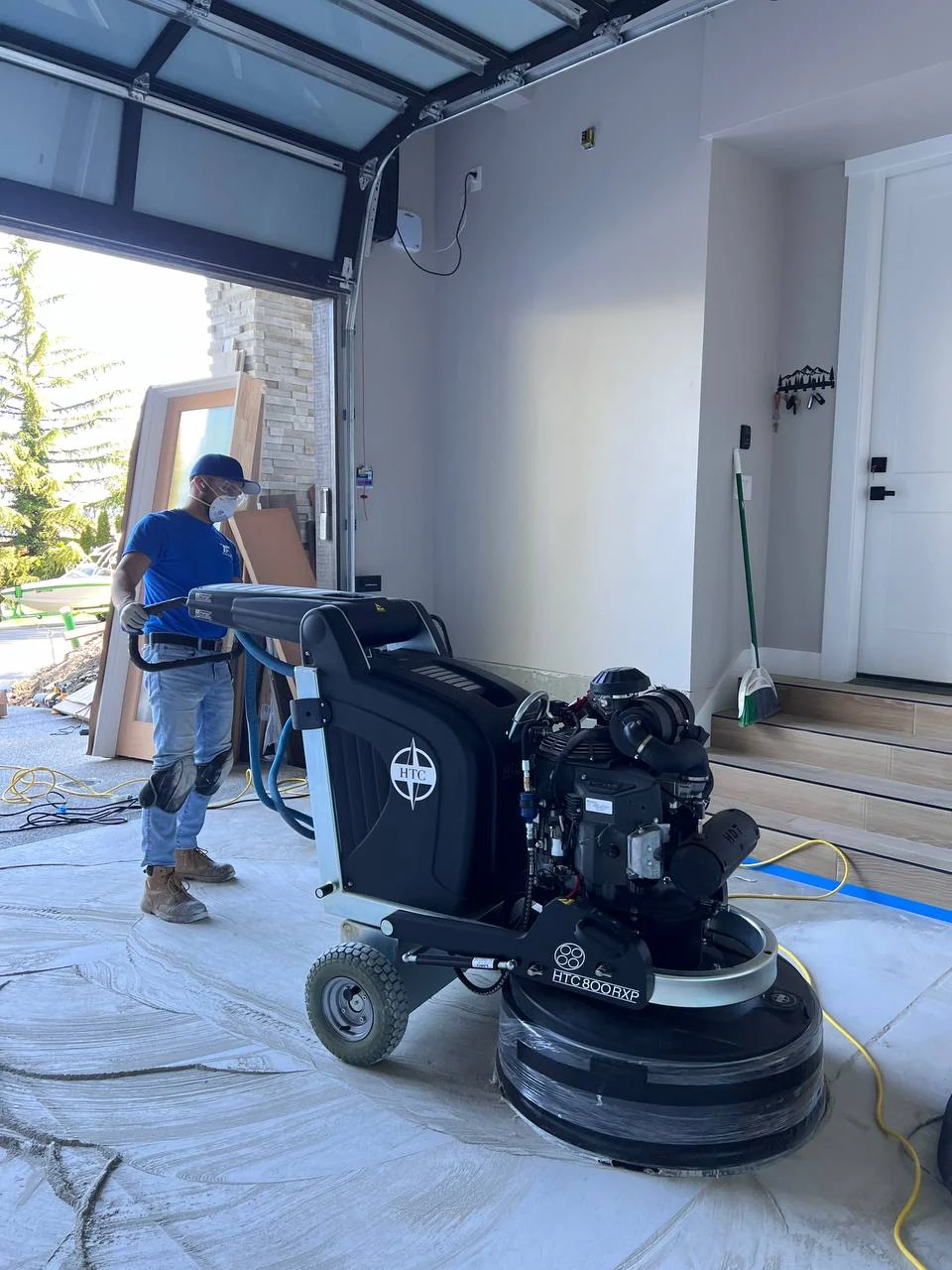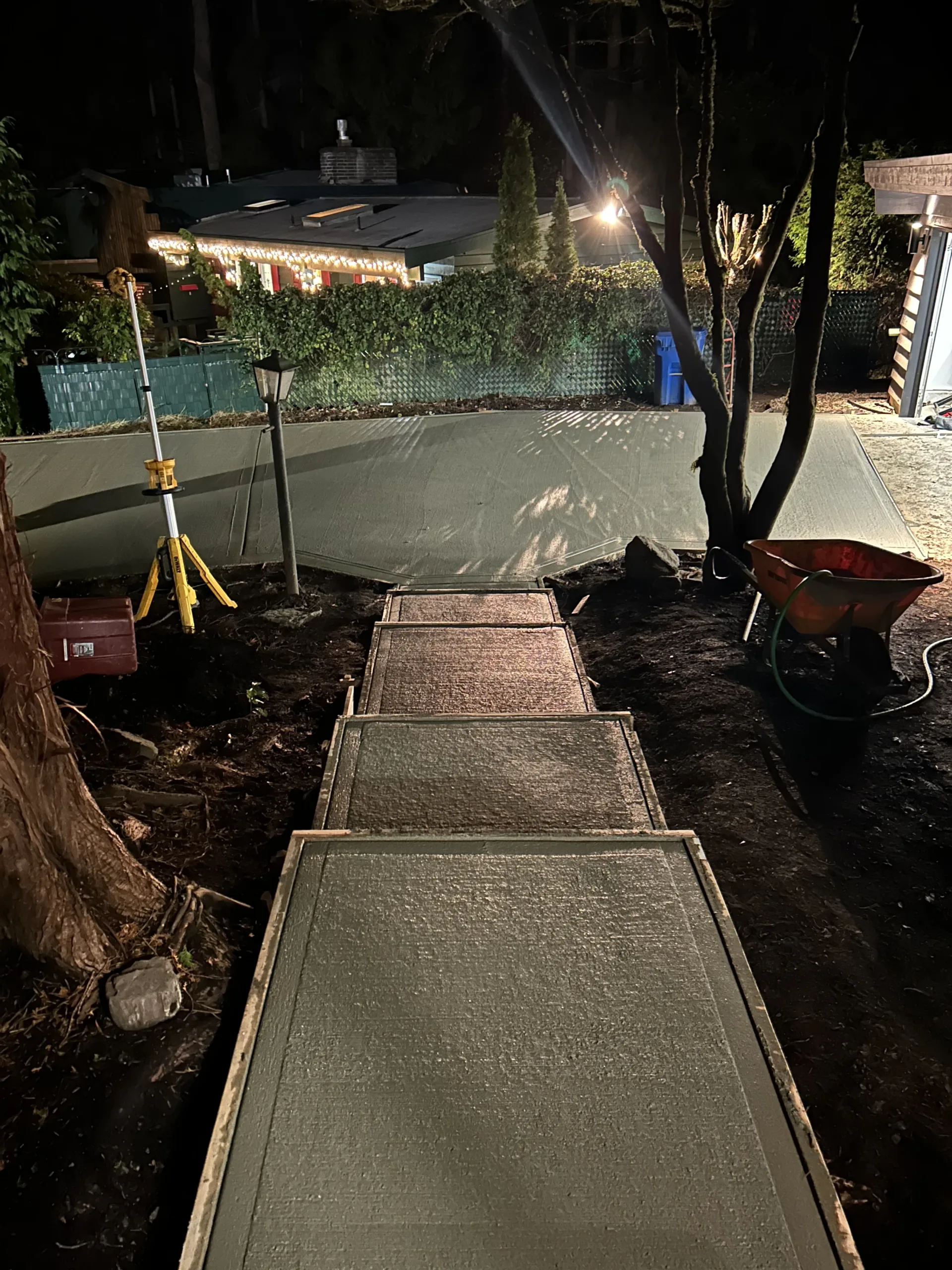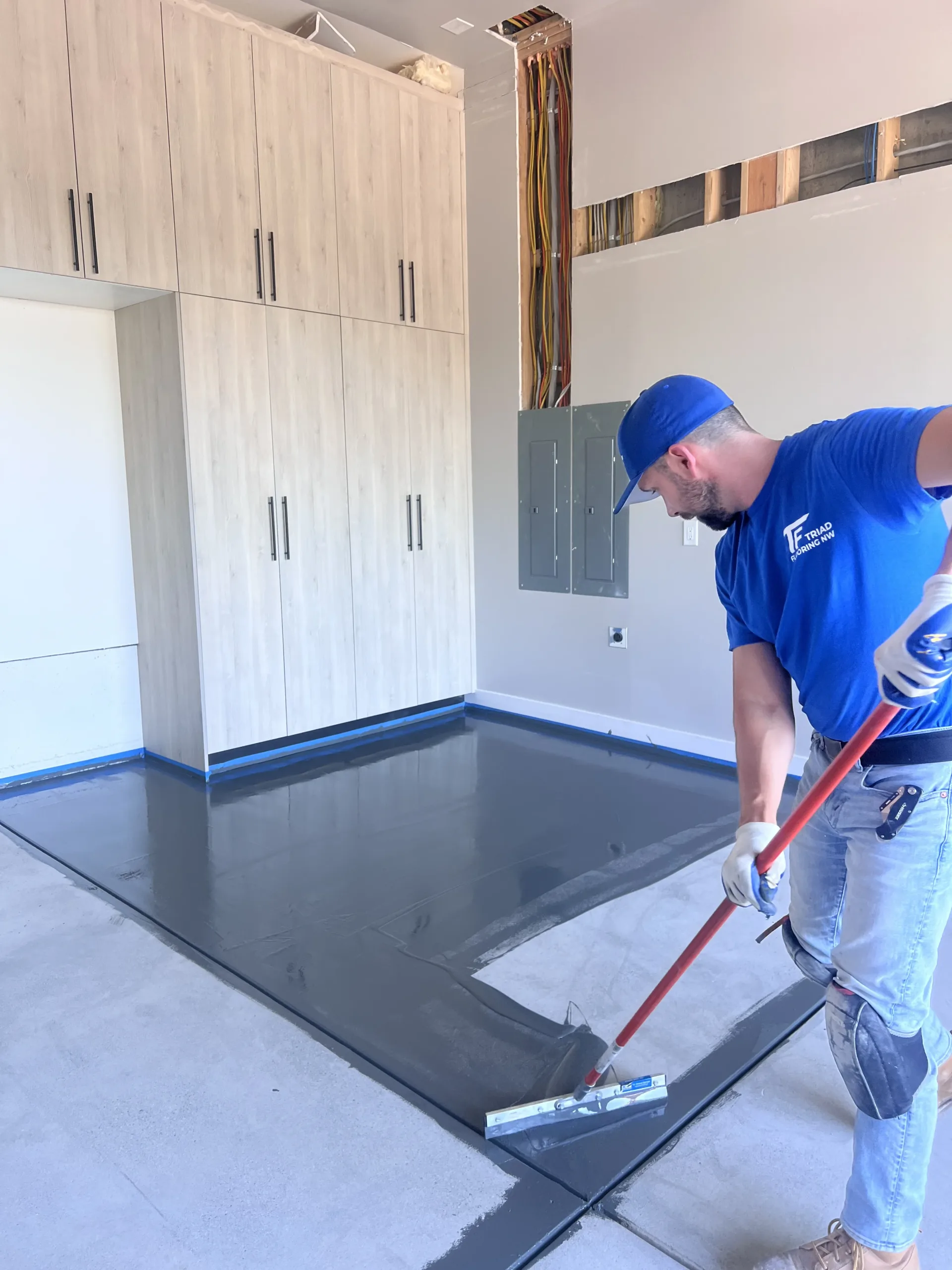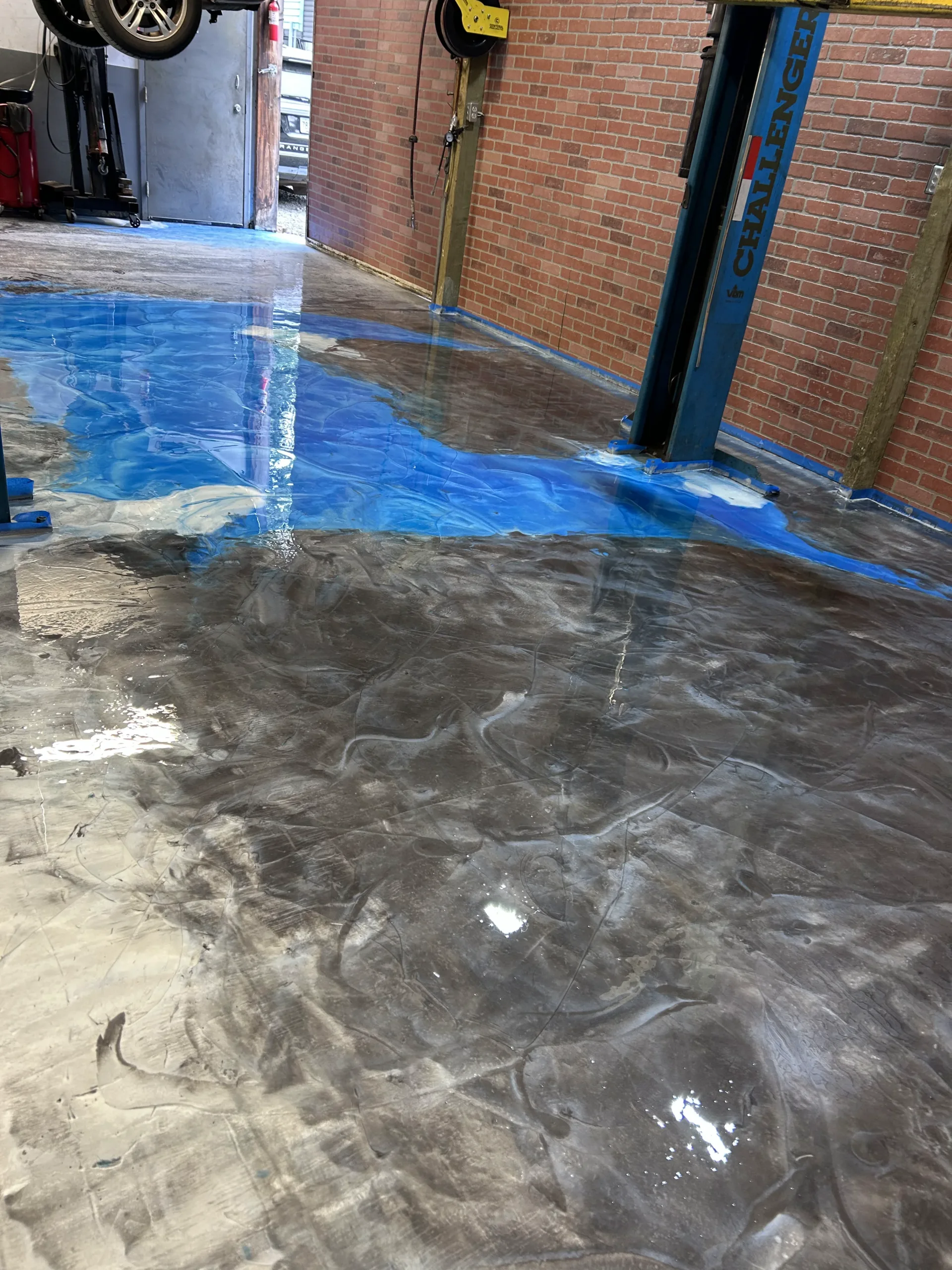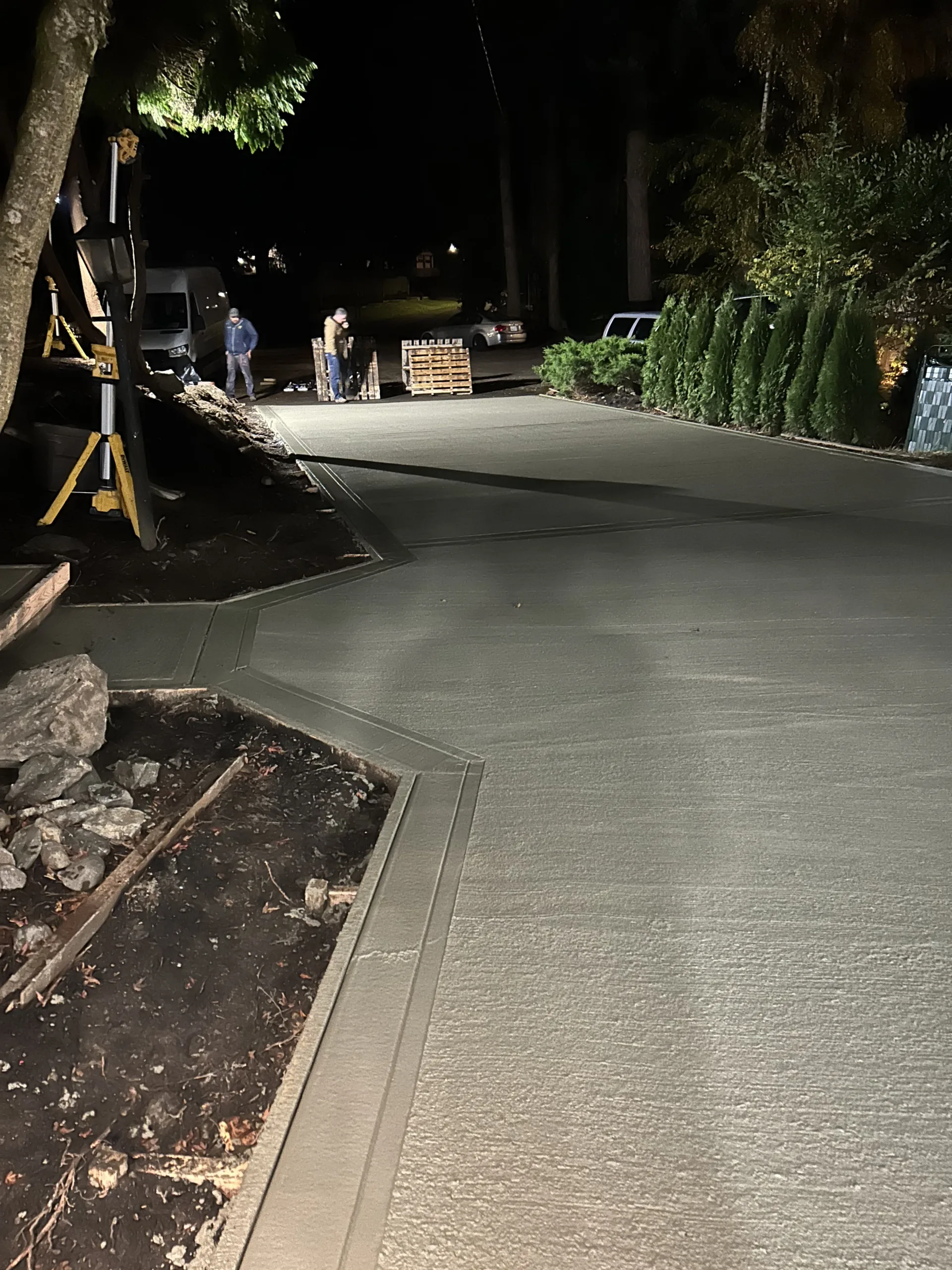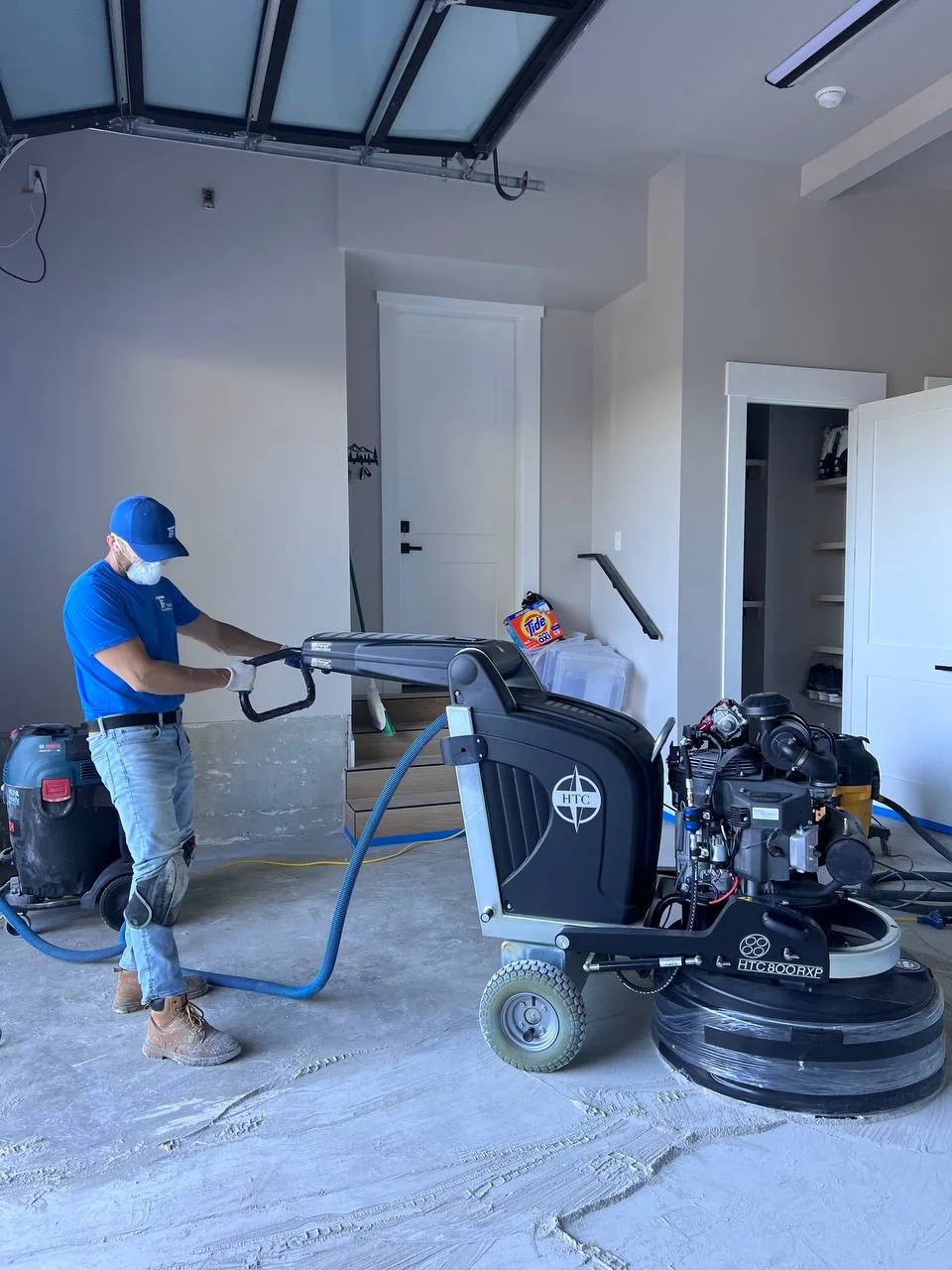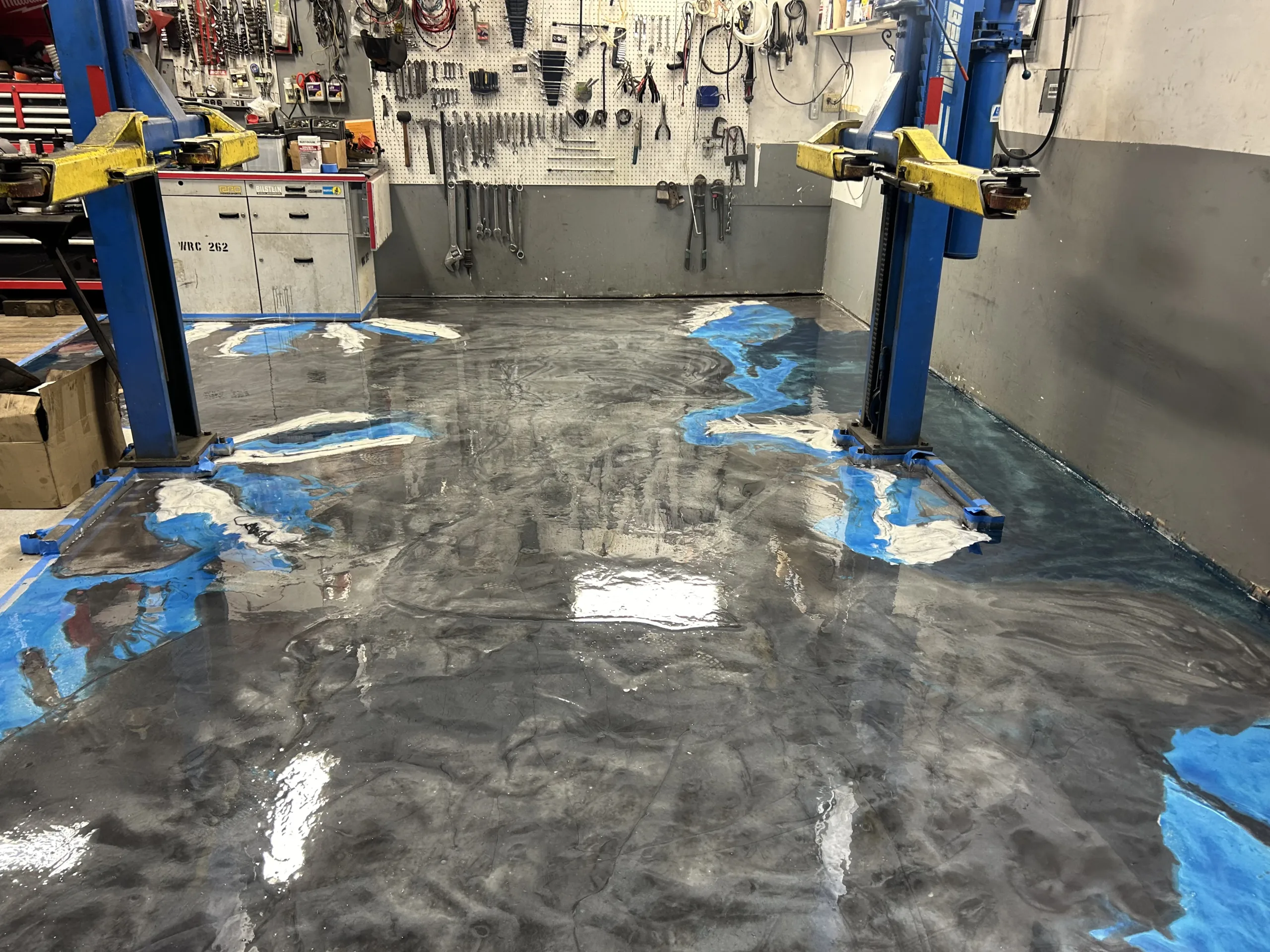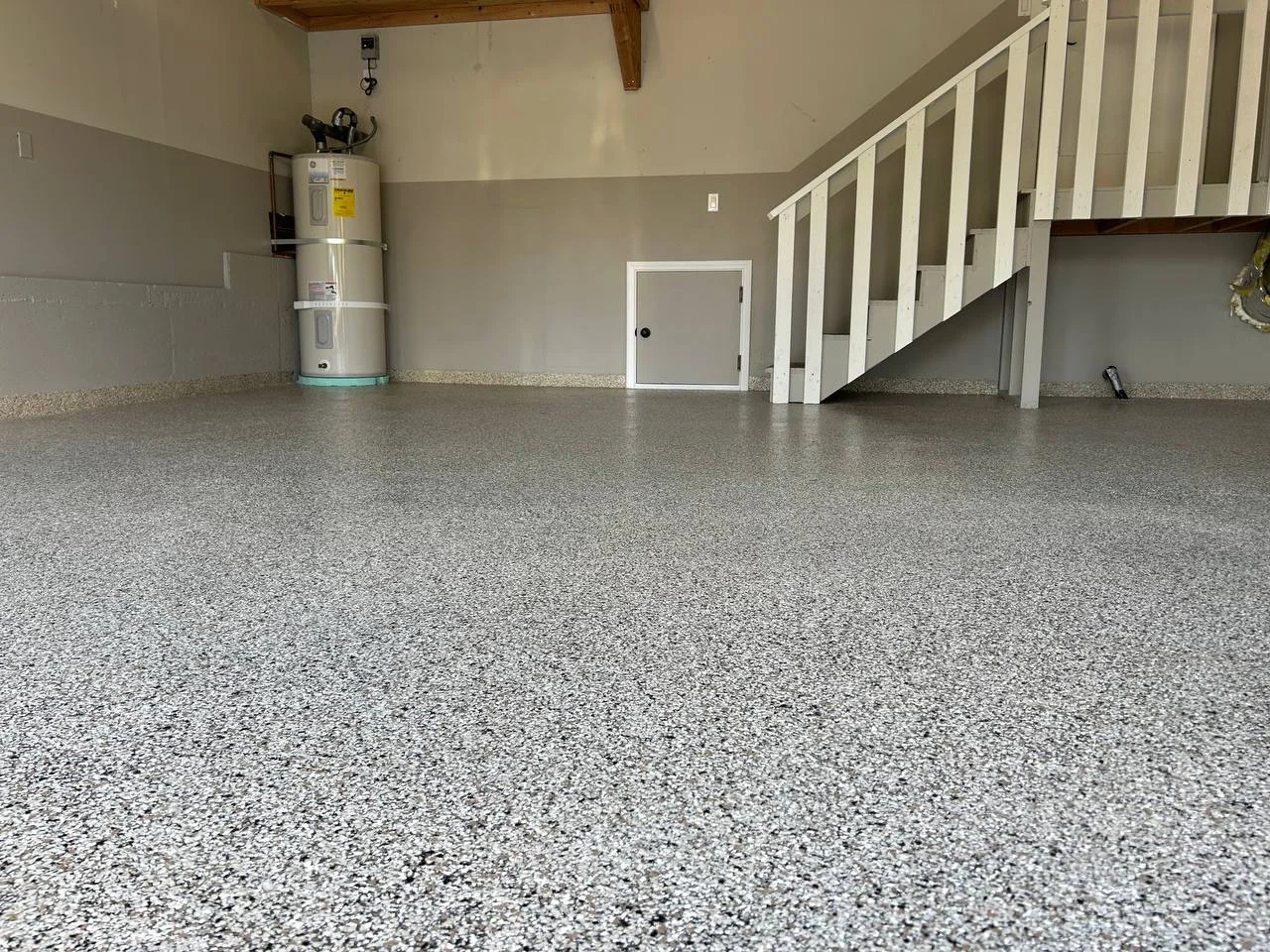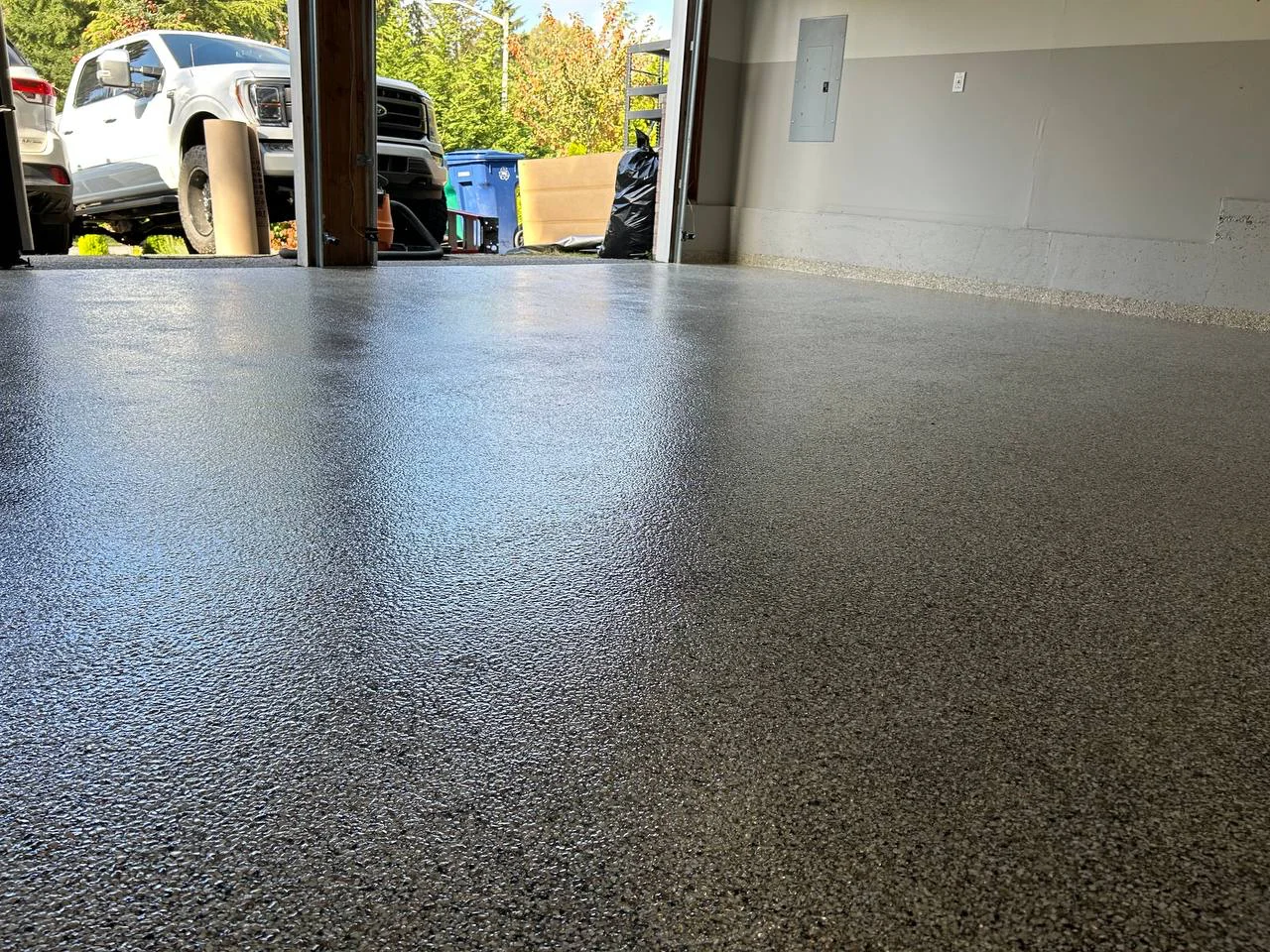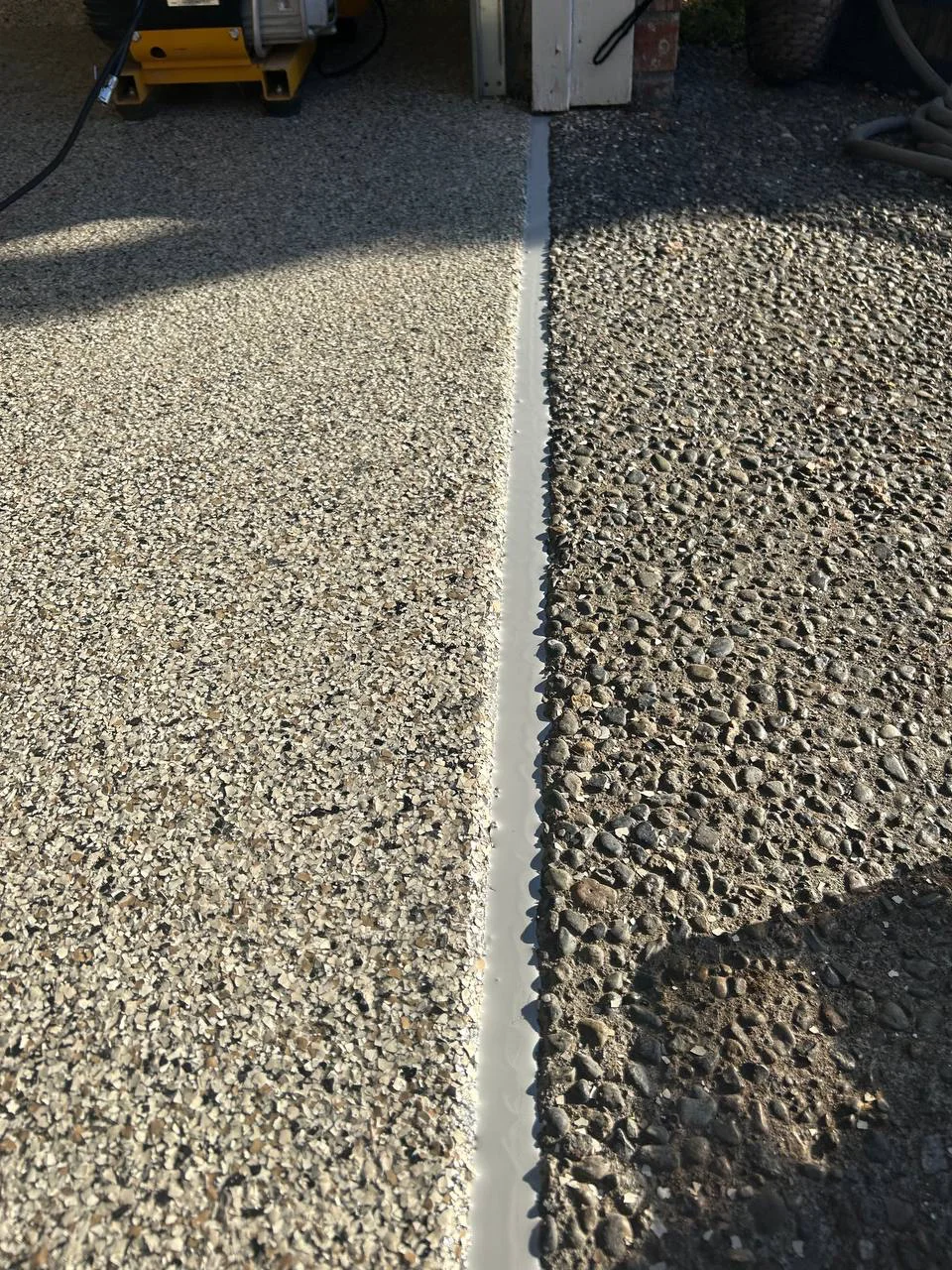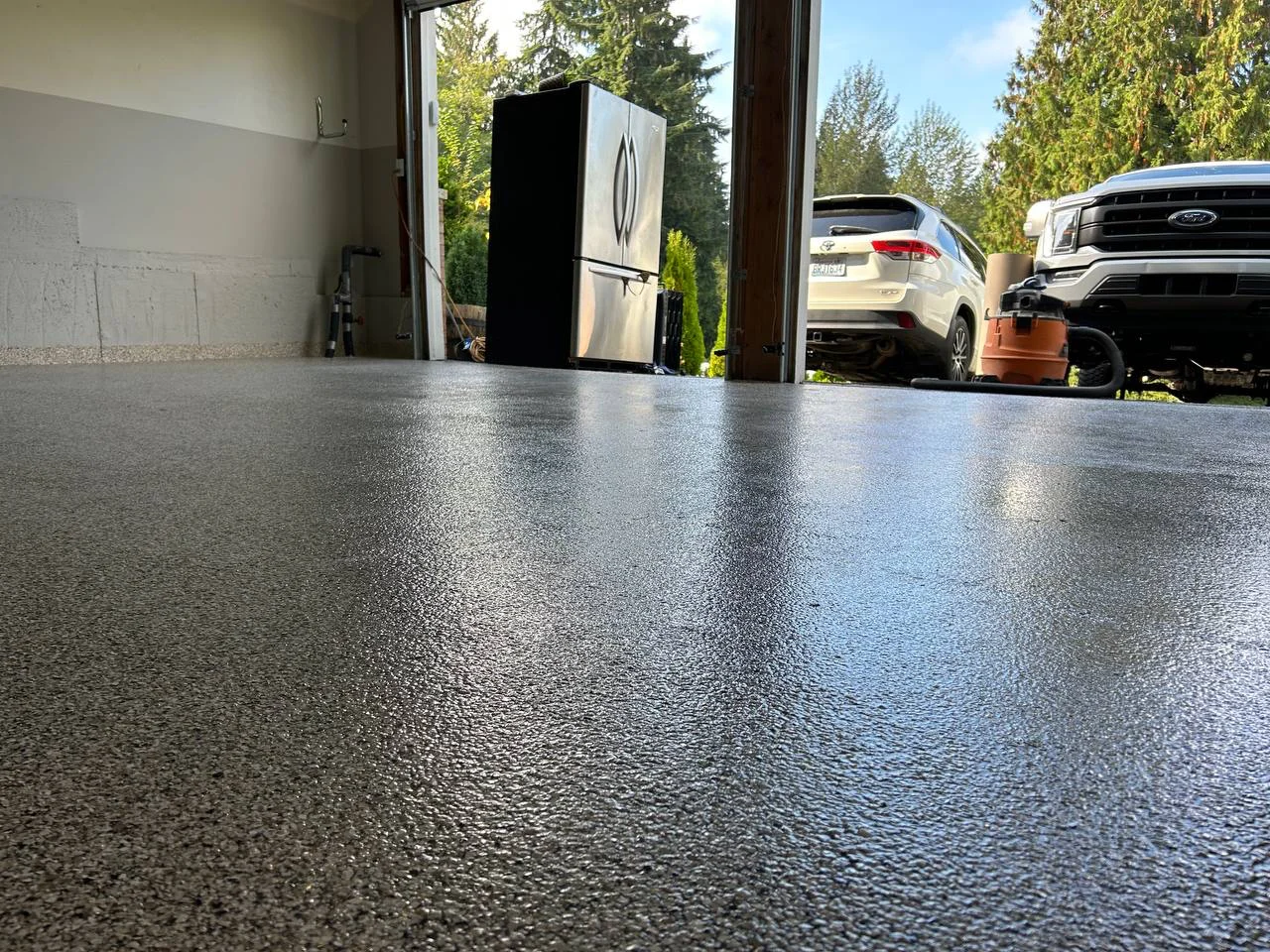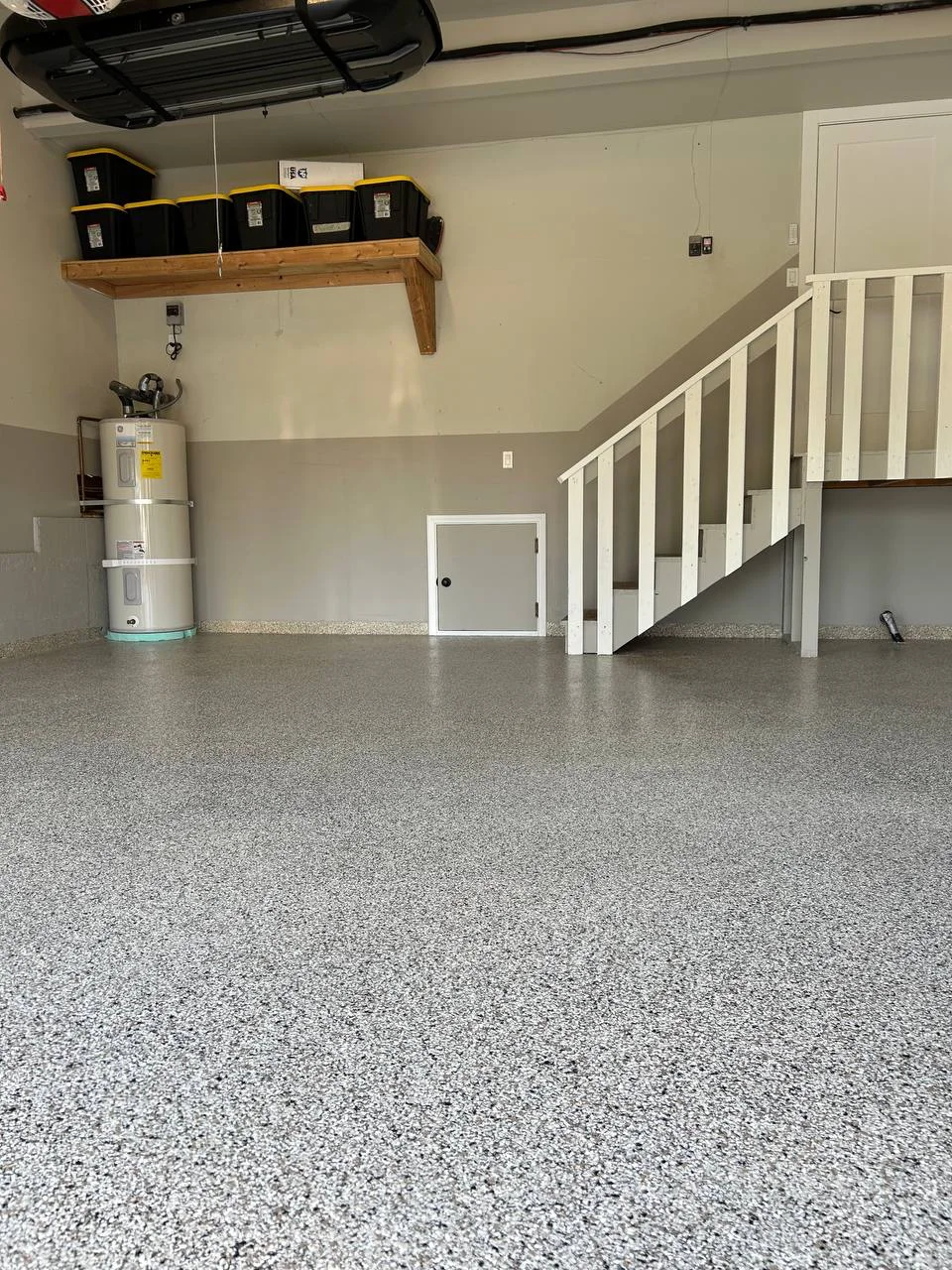Our Services
Always In Stock Styles
We also offer over 120 additional styles to suit your unique needs. Contact us to learn more!
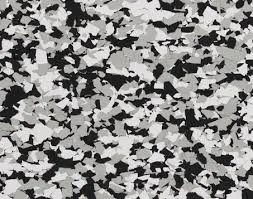
Dalmatian
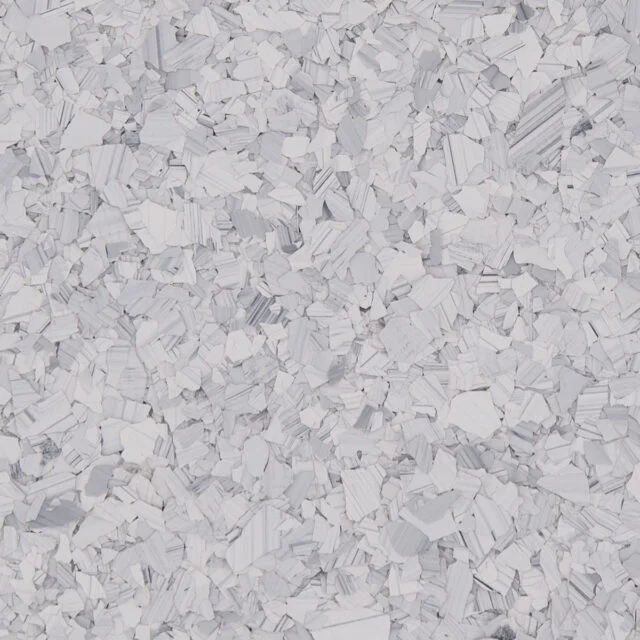
Pebble Gray
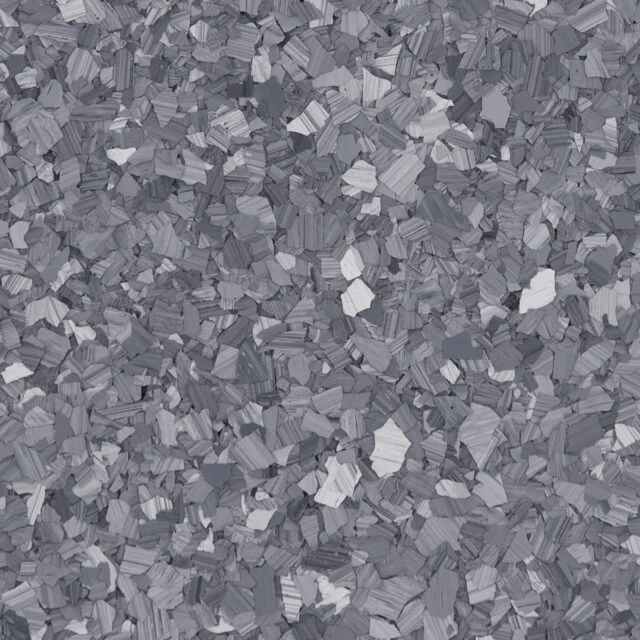
Volcanic Gray
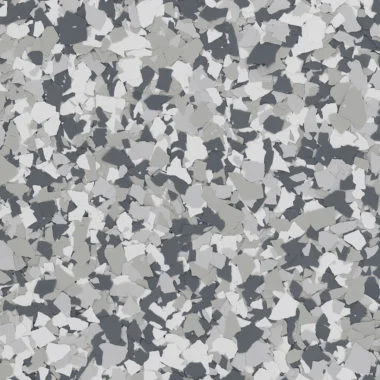
Graystoke
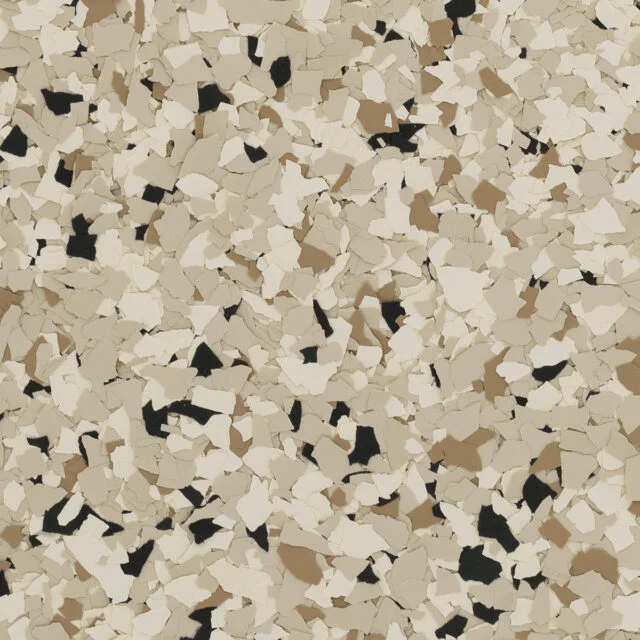
Lakeshore
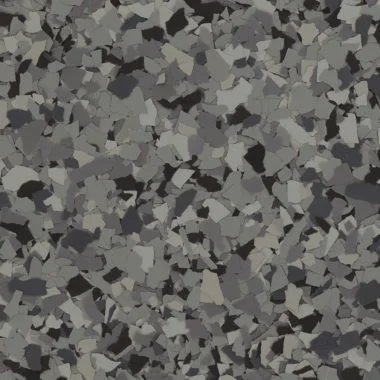
Streambed
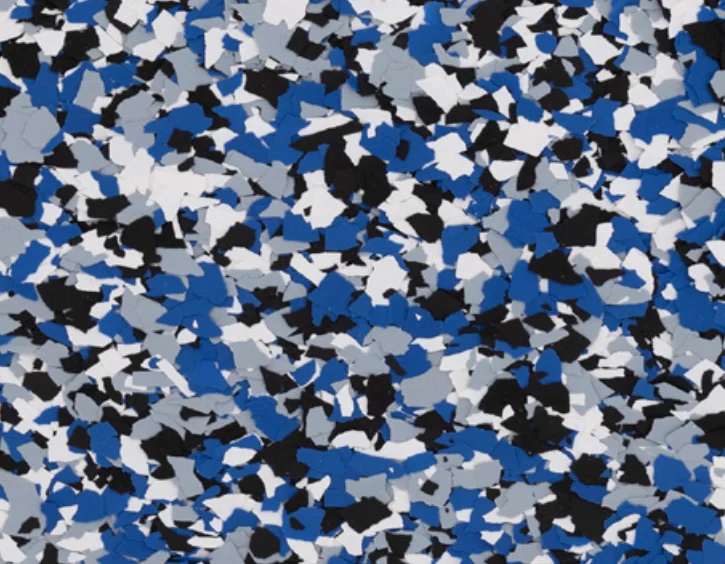
Starlight
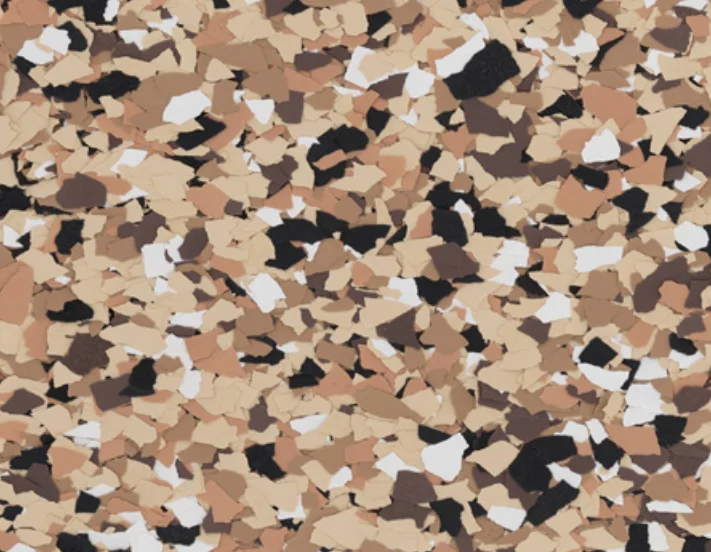
Wilderness
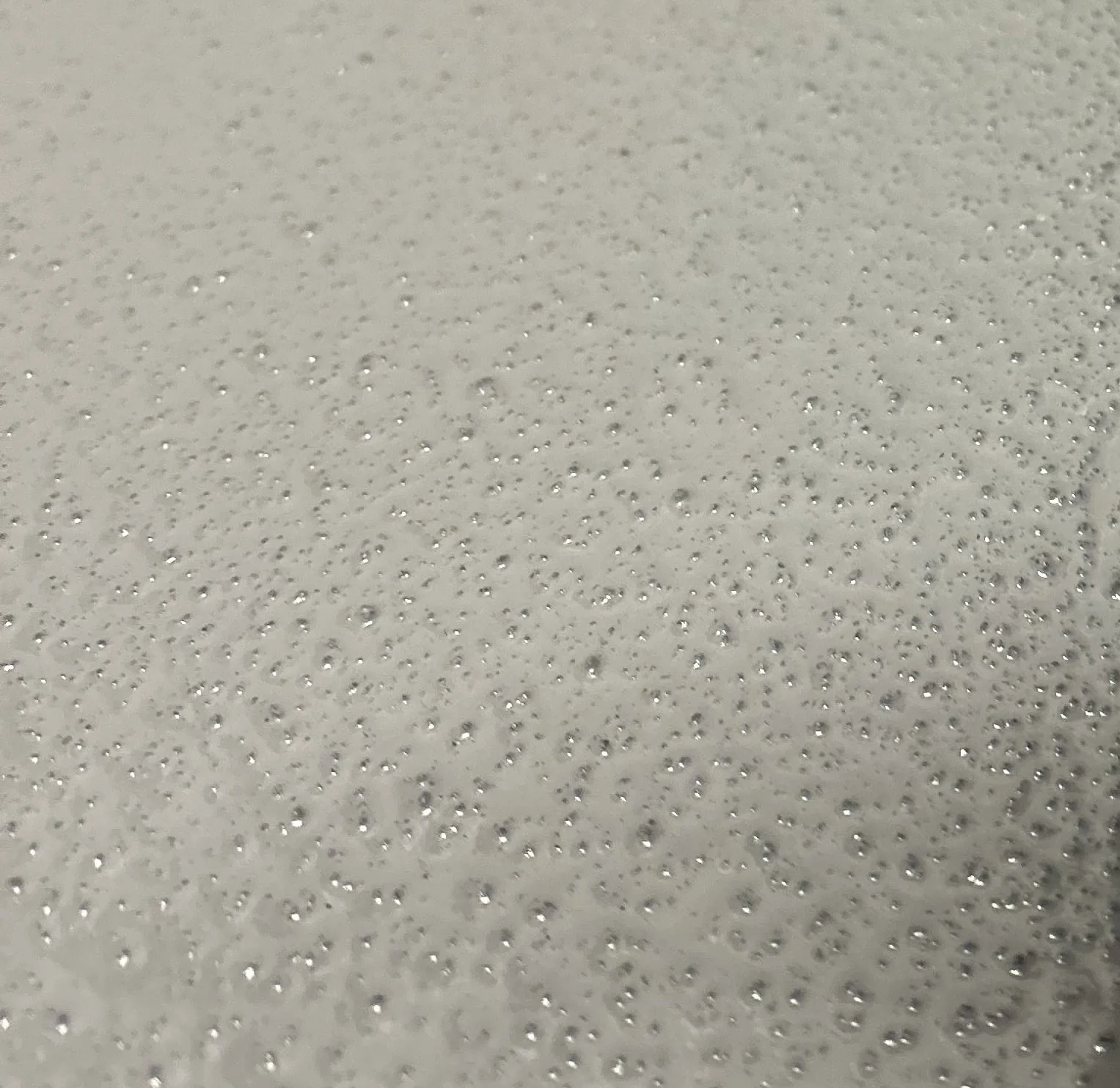
Antislip
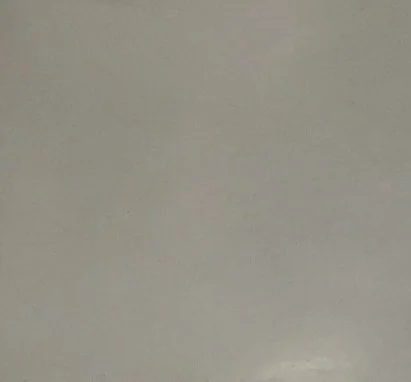
Matte
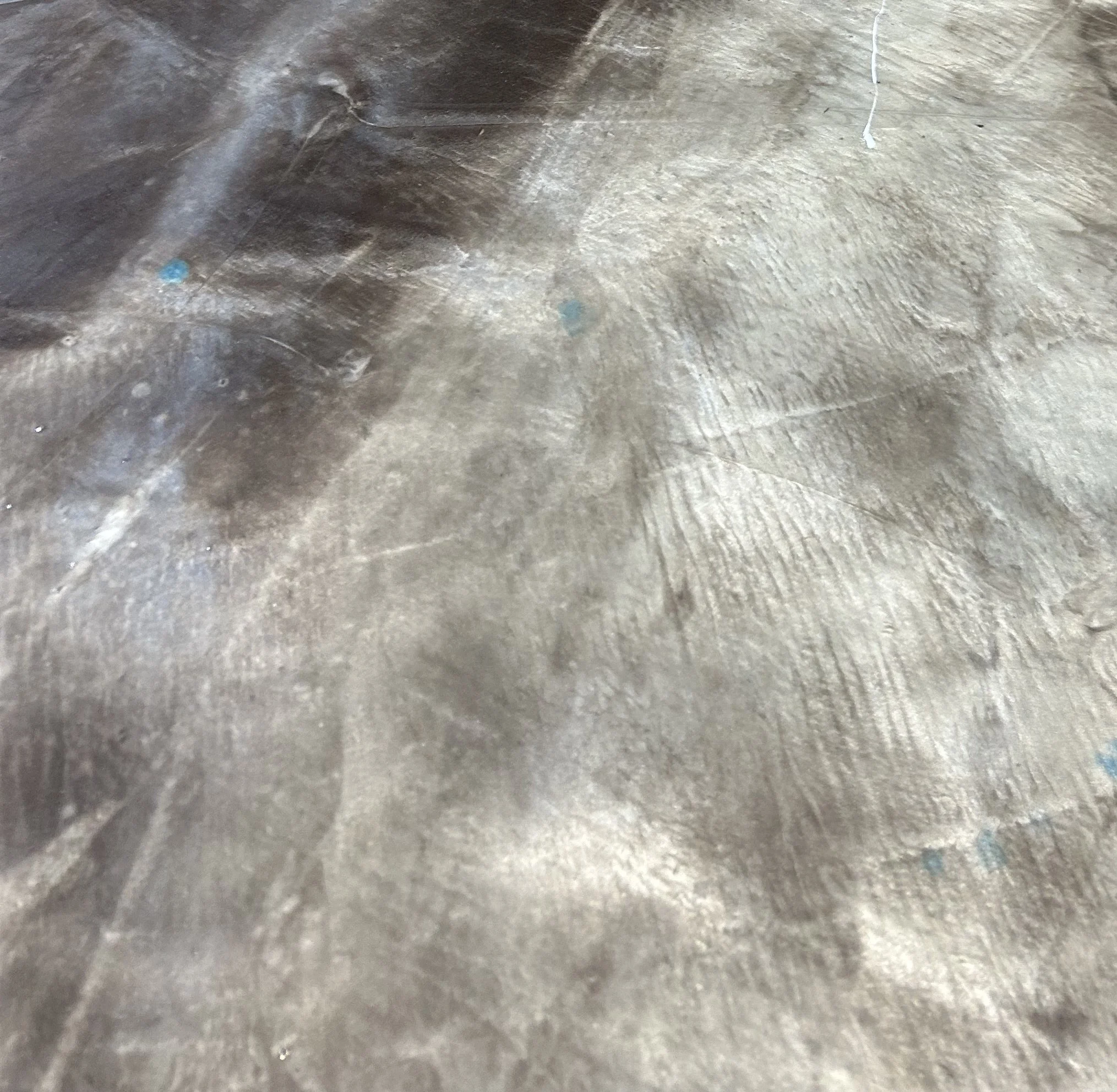
Metallic
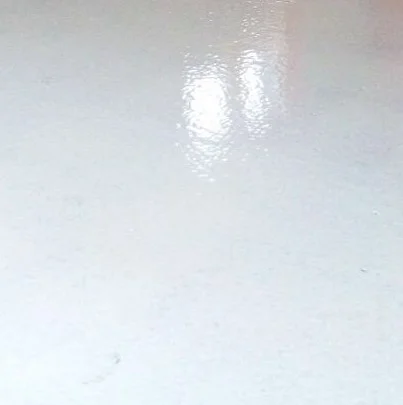
Super Gloss
Our Process
Bringing you closer to the floor you’ve always wanted.
Our Projects
Visual Elegance: A Gallery of Possibilities
From sleek and modern garage floor epoxies to elegant and unique metallic designs for living spaces, our gallery showcases the versatility and beauty of epoxy flooring.
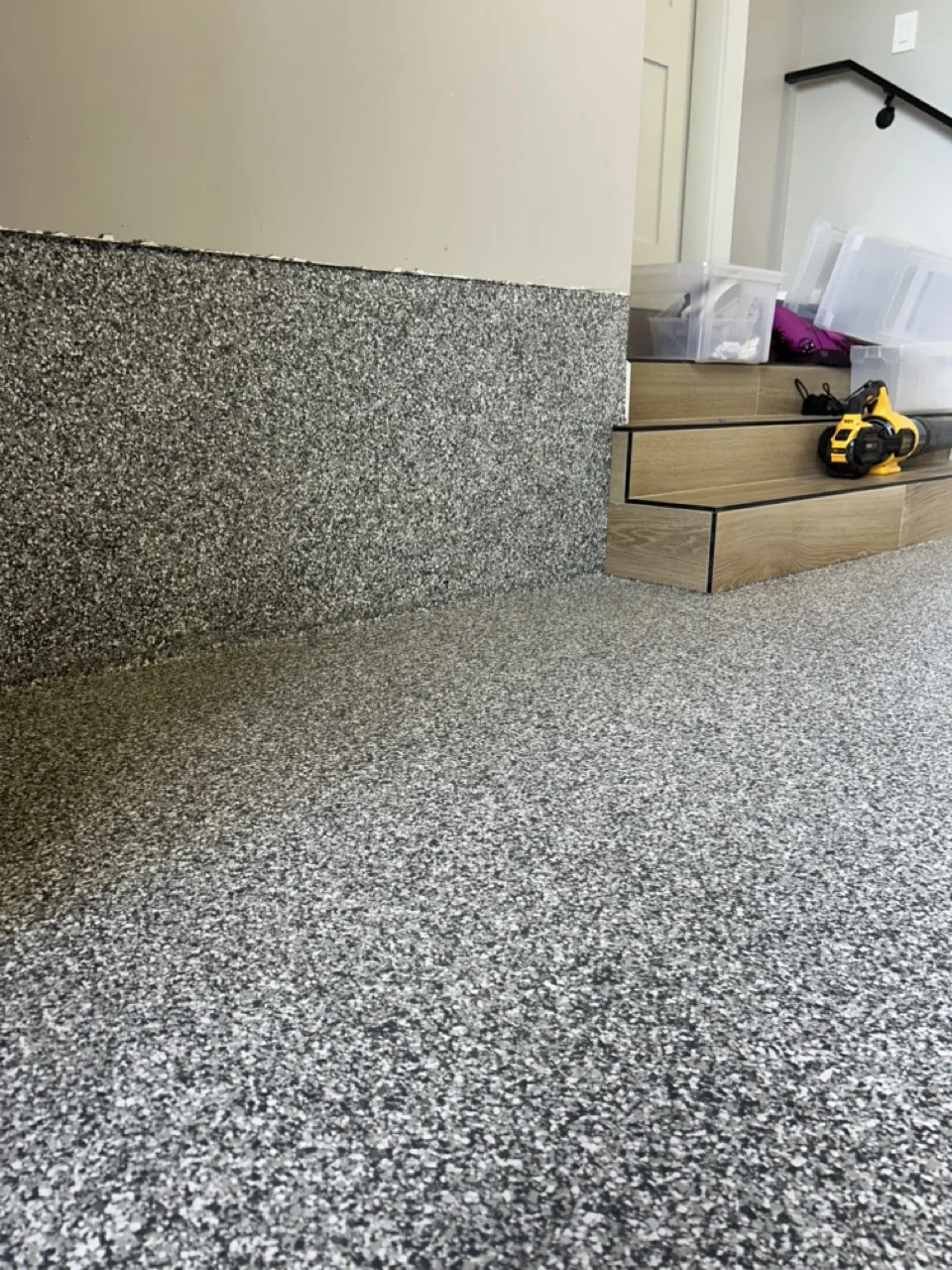
Let’s work on your project together
Special Offer: Free Epoxy Baseboards
For projects over 1000 sq ft, we are offering free epoxy baseboards. Enhance the durability and aesthetic appeal of your space with seamless, high-quality epoxy flooring and complimentary baseboards, ensuring a complete and polished look.
Guaranteed Accountability
We deliver results
300+
Satisfied Customers
“I recently had my garage floor done by TRIAD FLOORING-NW, and I’m absolutely thrilled with the results! The team was professional, punctual, and the quality of work is top-notch. My garage looks like a showroom now. Highly recommend!”

Amanda G., Seattle
5,000+
Square Feet of Flooring Installed Monthly
“I was looking to someone able to cover some old tiles with epoxy in a commercial kitchen.
They answered fast, plan and execute the job as planned and accommodating my schedule.
They went above and beyond to make me happy and satisfied with the final result and the whole process was smooth.
Really professional and definitely worth the price!
Recommended 1000%!!!”

Giovanni C. Lynnwood
10-Year
Durability Guarantee
“Very happy with our new epoxy flake flooring! From the initial quote to the complete installation, the entire process took less than a week. The Triad Flooring team was highly professional, providing excellent communication throughout, and even made sure everything was clean before they left. I’m thoroughly impressed with their quality, speed and cost. Highly recommend for anyone looking for flooring services!”
Artur G. Newcastle

